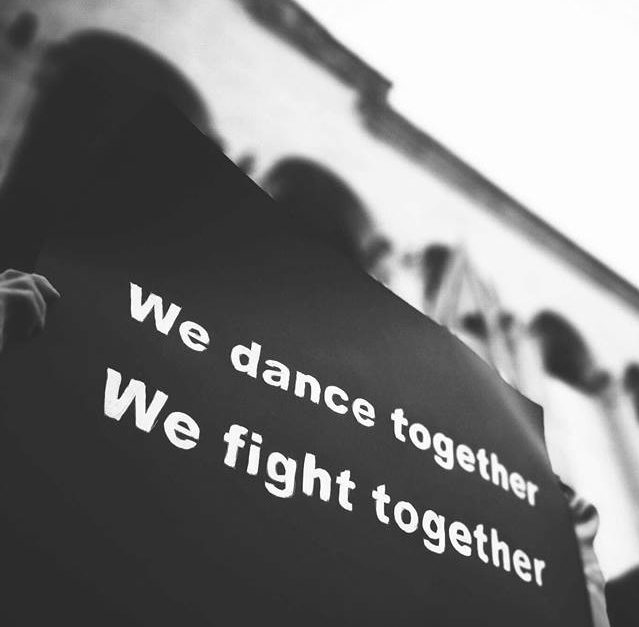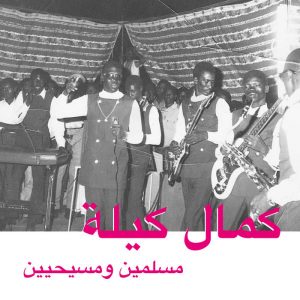Buy a one-way flight ticket to Tbilisi, the capital city of Georgia. Once there, stroll across the Bridge of Peace to the eastern bank of the Kura River. Seek out a discreet black archway concealed beneath the largest sports arena in the city, and you will step into a dimly lit dance floor with DJs spinning techno tracks, people passing around joints, and LGBTQ+ couples making out in the corners. You’ve just arrived at Bassiani, a globally renowned techno club that once ranked among the top 20 in the world. Don’t be misled by the liveliness of this place; hidden behind its facade lies a powerful undercurrent. Bassiani, in fact, serves as a political frontier for the youth within Georgia.
Bassiani derives its name from the 13th-century independence war of the Georgian kingdom in Basian. Founded in 2014 by Zviad Gelbakhiani, Tato Getia, and Naja Orashvili, it was initially a space for electronic music enthusiasts to gather and enjoy the techno beats that reverberated through its cavernous rooms. The club is located in an abandoned Soviet-era swimming pool, lending it an air of mystery and intrigue. However, this venue would soon come to symbolize much more than just music and entertainment. It soon attracted young people and marginalized groups, effectively becoming their safe haven that seemed to exist in parallel to the less-tolerant Georgian society outside its walls.
A Glimpse into Today’s Georgian Society
Georgia, known for its delicious wine and being Joseph Stalin’s country of origin, is one of the former Soviet republics nestled in the Southern Caucasus. Since its independence from Russia’s orbit in 1991, it has been actively seeking a Western pivot, including efforts to join NATO and the recent application for EU candidacy. Georgia has been considered one of the post-Soviet states that has a smooth transition to democracy and the establishment of a civil society. However, since the syncretic Georgian Dream Party came into power in 2012, signs of democratic backsliding and authoritarianism have emerged. Besides making one of its central appeals the mending of Georgia’s relation with Russia, the government has been accused of expanding control over independent media agencies and security forces by the Western states. This year, an attempt to pass a law echoing the Russian counterpart signed by Vladimir Putin, mandating individuals and organizations receiving international funding to register as foreign agents, has raised concerns about a growing authoritarian trend, despite the public’s general pro-Western sentiments.
The Georgian Dream Party draws on appeals to religion, which remains significant in contemporary Georgian society; 83.4% of its 3.7 million population identify with the Christian Orthodox faith. The Georgian Orthodox Church is the most influential and trusted conservative force within Georgia. Although not directly involved in politics, the Church is respected by the Georgian government, and the Patriarch, Ilia II, commands widespread respect and a great deal of say in public affairs. In July 2023, the Church called for the enactment of a law prohibiting queer “propaganda,” while senior figures in Georgian Dream repeated this sentiment, adopting and intensifying anti-LGBTQ+ rhetoric in their public statements.
Queer Activism
Homophobia remains prevalent within Georgian society, but queer activism has thrived underground, with Bassiani as one of its main hubs. This club provides shelter for those marginalized by mainstream society due to their identity, embracing them with inclusion and diversity. Horoom Night, one of the party series featured at Bassiani, is a joyous celebration of queerness, where bodily, sexual, and other forms of free expression are welcomed and absolutely accepted. “Horoom is an extremely important space, because people who just came out or visited Bassiani for the first time can see fearless queers on the stage performing, playing with their own rules and rejecting to fit into social norms,’’ said Tornike Kusiani, a Georgian social activist. To create a safe space free from harassment by homophobic groups, staff and volunteers of Bassiani thoroughly vet every patron: attendees must provide their ID numbers and social media accounts for registration, and there are stringent door checks. Each Facebook profile is carefully scrutinized by activists of the Equality Movement, an LGBTQ+ rights NGO.
According to Tato Getia, Horoom Night was founded as an “intentional political statement” in response to the prevailing homophobia in Georgia, and the regular violence against sexual minorities, often with the acquiescence of the authorities. It has united the queer community in Georgia and become a political movement. Despite challenges such as police raids and COVID-19 restrictions, this series has persisted into 2023, bringing about significant change over the past decade. In 2019, Georgia witnessed its first LGBTQ+ pride parade in Tbilisi, which has continued for another three years. This movement isn’t just about celebrating queer rights; it is a resistance to patriarchy, authoritarianism and orthodox values, as well as a call for European democracy, where everyone can publicly assert their identities and exercise their right to free speech without security threats.
Political Appeal: Legalization of Cannabis
Apart from providing a safe space for the gender minority group, Basianni has also become a sanctuary for cannabis users. Georgia, heavily influenced by policies during the Soviet Union, previously maintained harsh regulations on drug use. Under criminal laws, mere possession of drugs exceeding a small amount was a criminal violation, punishable with 0.5–6 to 8–20 years or lifetime imprisonment, depending on the amount involved. Similarly, societal norms stigmatized drug use with minimal tolerance. Both the ruling party and the influential Patriarch expressed strong disapproval of drug usage. In a Christmas message, the Patriarch labeled drug addiction as “a new disease” and urged the government “to work out new drug policies that would prevent young people from using drugs and create a negative attitude toward that dire disease.”
No significant changes took place until 2018. On May 12 of that year, the armed police raided Bassiani and Cafe Gallery, two renowned sub-cultural hubs in Tbilisi, purportedly to prevent illegal drug sales. Over 60 individuals, including founders of Bassiani and White Noise Movement (WNM), were arrested. WNM is a political group advocating for drug decriminalization that is closely connected to Bassiani: members of these two communities majorly overlap, and founders of Bassiani regularly speak at WNM events in favor of drug reform. In response to this unsubstantiated raid and police brutality, members of Bassiani and WNM initiated the rally outside the Georgian parliament with around 15,000 participants on the same afternoon, mobilizing almost the entire underground community. The rally lasted for two days and eventually turned into a party, where DJs brought their sets and thousands of demonstrators raved for hours right in front of the parliament building, demanding drug policy reform in their unique way.
Although this rally was disrupted by neo-fascist groups opposing drug use and LGBTQ+ rights, it succeeded in bringing substantial changes to Georgia. In June 2018, the Prime Minister Giorgi Kvirikashvili resigned following the May protests. In July 2018, despite strong opposition from the ruling party, the constitutional court ruled that “consumption of marijuana is an action protected by the right to free personality.” This signified the legalization of cannabis use in Georgia, making it the first post-Soviet country to do so. Today, if you walk into Fabrika Hostel, a gathering spot for young people in Tbilisi, you will find a vibrant scene where people skate, smoke joints, and chat in the bowl, thanks to efforts and enduring resistance from members of Basiani, WNM, and the bigger underground community. As Geita commented, “the voices of people who were dancing in the darkness finally reached the daylight.”
Further Impact on the Southern Caucasus
Bassiani’s influence is not limited to Georgia; it has extended to the entire Southern Caucasus. Its ideology and inclusiveness have made young people from Armenia and Azerbaijan travel all the way to Georgia for the raving scene. Inspired by Bassiani, more clubs sharing a similar ideology have emerged as part of the regional rave culture, such as Poligraf in Yerevan and iN in Baku. In April 2023, after a police raid in Poligraf akin to the one in Tbilisi, people petitioned the Armenian government to reopen Poligraf, echoing the rhetoric of Georgian protestors in 2018. Against the dominant traditional values across post-Soviet states, these clubs and the rave culture created a space for people to freely explore and embrace their true selves, evolving beyond mere social spaces to become a collective movement demanding and facilitating societal changes. Although democracy in the Southern Caucasus is still fragile, these rave clubs have become a unique political force representing the younger generation with great potential.
I had the honor to witness the vigor of the Georgian youth myself during a spontaneous trip to Tbilisi, Georgia in the summer of 2021. It was during the COVID-19 pandemic, so the government had banned any club operation after midnight. As I was wandering aimlessly, trying to find some nightlife scenes, I stumbled upon a street party right under the Bridge of Peace. Heedless of the governmental decree, 20 young people were dancing and singing around a yellow booth car blasting Georgian rap, with the booth also serving as a makeshift bar where a girl offered shots for the dancers. Spotting me from afar, the girl came to drag me into their circle and poured me a chacha shot. Despite the language barrier—my Georgian was as poor as their English—I soon found out they were frequent patrons to Bassiani. As the club was shut temporarily due to COVID, they found an alternative for gathering and revelry: starting their own street party.
Mariam, the bartender girl and the organizer of the party, described it as an open act of defiance against the government. “Fuck those rules and rigid values,” she exclaimed.
Featured Image Source: Electronic Groove






Comments are closed.